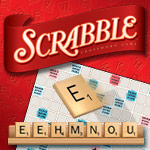 The Trademark Blog, which is written by Martin Schwimmer a very internet literate TM lawyer, asked What Should IP Owners Do In A Scrabulous Situation?
The Trademark Blog, which is written by Martin Schwimmer a very internet literate TM lawyer, asked What Should IP Owners Do In A Scrabulous Situation?
This is a very important question and one that needs to be answered not just by lawyers but also by users. It is important to protect your marks on and offline, but not at the cost of the associated good will. Hasbro chose one of the worst options both from a business and PR perspective. Hasbro saw that the unofficial Facebook app Scrabulous was very popular. Hasbro spent 6 months developing its’ own app and then when it launched it used legal threats to remove Scrabulous from Facebook.
Hasbro was attacked by hackers shortly after launching the official version and forcing Scrabulous offline. To a digital native the reaction makes perfect sense. Hasbro is punishing innovators that created a market online and likely increased the popularity of the game both online and offline. The innovators did extremely valuable market research while creating a community for Hasbro, and Hasbro is repaying them by quashing them in the process of monopolizing the market.
In a Web 2.0 world, one filled with fans that help you, you need to reward them not fight them for creating communities and new markets.
Here are my reactions to the question posted on The Trademark Blog:
Q: If the Agarwalla Brothers (the creators of Scrabulous) had approached Hasbro two years ago with a proposal for a FB version of Scrabble, what likely result?
A: Hasbro would have ignored them and possibly taken the idea while never giving them any credit. Have you tried sending Apple an idea, they send you back a lawyer drafted letter that looks like it comes from the mob. My understanding is that Apple eventually apologized, but once that PR damage is done it is too late.
Q: If Hasbro were to pay the Agarwalla Brothers millions, what likely result?
A: This is the right move hands down. You offer a buy out at a reasonable price.(it does not have to be millions) Then only if the infringing innovator is not reasonable you use the law as a last resort.
Q: If Hasbro had brought this action in January, 7 months prior to having its own version up and running, what likely result?
A: Hasbro would have lost a lot of user, but by waiting Hasbro is clearly trying to free ride off the innovators. This double standard of using fans then stepping on them only angers fans.
If you have comments join the conversation at The Trademark Blog

